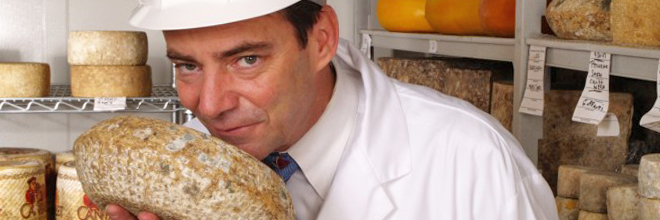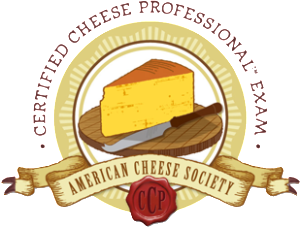
There are no foods with a greater capacity to inspire passionate discourse, with a myriad of facets to consider: from animal welfare and sustainability, to nutrition and safety. This is part of the beauty of cheese study; it invites contemplation and it stimulates discussions around the globe and around the clock.
A former student emails me questions from her shop in Hong Kong; which triggers the memory of last summer’s young Provençale chèvres au lait cru – illegal for import here due to outdated and misinformed rationale; which reminds me of the upcoming FDA visit to the 31st American Cheese Society conference in Sacramento – a conference now being staged by the organization’s Denver-based administrators and a team of volunteer planning and judging committees’ members from around the country; while cheesemaker Mary Quicke readies for her full day traveling from Devon, England to be there too; while in the meantime: a cheese trolley is being set up for the evening service at a restaurant in Melbourne, who’s chef was inspired by a cheese talk given by Russell Smith – cheese expert of Down Under – also headed that way; as candidates for the Certified Cheese Professional exam are up all night cramming for the 29th of July; shepherds are releasing their flocks from their milking parlors in Portugal’s sunny Beira Baixa; while many millions of pounds of fermented milk cure on cool and damp wooden boards right here in the U.S. of A.; and young and old tummies alike are sated everywhere, including those of the crew of an international space station orbiting our planet.
It is good. Cheese is a food that is as greatly revered as it is reviled. Yet it is a food that has sustained our race for millennia and one that has been offered as a peace offering between warring parties.
Cheese is headed your way, starting now!
Max



